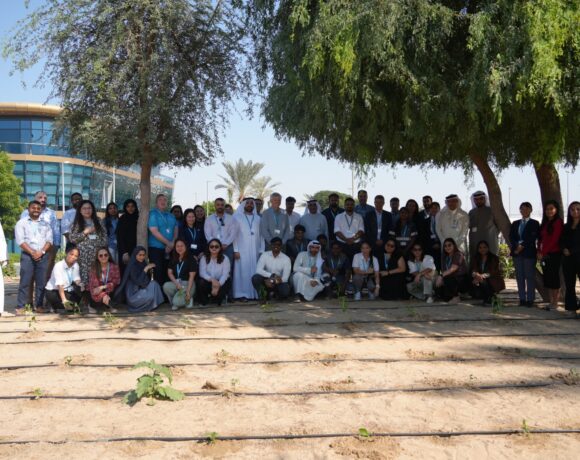It is time to disrupt the consultancy model; here’s why

By Paul Bogan, Regional Director of Advisory, +impact, a Serco company
Advisory and consulting firms have long been known for parachuting into organisations, proposing strategic recommendations, and exiting before implementation. While these proposals may be meticulously crafted and capable of transforming businesses, the growing demand for end-to-end solutions has sparked a significant shift.
Clients are still looking for more than just strategic guidance; they want more far-reaching support in the operational stage, seeking tangible results from firms offering strategic and execution capabilities.
This shift is particularly evident in the Middle East, where large-scale transformations, such as those under Saudi Arabia’s Vision 2030, reshape regions and industries. The question is: Is the conventional consultancy approach becoming obsolete due to these complex regional needs?
The regional shift
Across the Middle East, governments and businesses are embarking on transformative initiatives that extend far beyond new projects. The opportunities to enhance and modernise existing infrastructure are abundant, creating more robust platforms for sustainable growth and driving national capacity-building efforts.
While giga-projects like Neom, The Line, and AlUla in Saudi Arabia often dominate headlines, the work done to optimise existing infrastructure is equally important. By offering end-to-end solutions, consultancy and advisory businesses can ensure that systems are modernised and aligned with broader national strategies, creating the foundation for future growth.

As part of these efforts, consultancies are well-positioned to play a critical role in vision realisation programmes, such as those focused on human capital development. The Middle East region’s leadership, particularly in Saudi Arabia, seeks to build new cities and sectors and elevate national capabilities, enabling sustainable economic and social progress.
This involves a significant emphasis on knowledge transfer, whereby all larger-scale private sector businesses, including consultancies, must help develop the expertise necessary for long-term success.
The case for change
Historically, the consultancy landscape in the Middle East has been fragmented. Different companies, or even separate departments within the same consultancy, have handled various project stages – from strategy and planning to execution and monitoring.
This fragmentation often results in inefficiencies, communication breakdowns, budget overspending and a lack of accountability that can undermine a project’s success. Given the scale and complexity of Vision 2030 projects in a country like Saudi Arabia, these inefficiencies are no longer tolerable. What is needed now is a more integrated, cohesive approach.
Saudi Arabia has already recognised the challenges posed by this fragmented consultancy model. Reports from entities like Expro have highlighted the billions spent on consulting services over the years and have been among the key drivers for establishing government bodies, which aim to transform how government entities engage with consultants and ensure that projects are effectively executed.
This has also opened up opportunities for more disruptive entries into the advisory space – such as those offering end-to-end solutions that address both the planning and execution phases of a project. A consultancy that can manage an entire project – from concept to execution and operations – offers immense value.
Bringing in experienced advisors who have the planning capabilities and can bring projects to life and operate them will mean that both vision and execution can be quickly and consistently connected.

A single operator can develop a profound understanding of the project’s goals, context, and nuances, enabling more coherent and effective decision-making throughout the project’s lifecycle and saving time, resources, and budgets.
In Saudi Arabia and UAE’s government visions, where projects are large-scale and multifaceted, spanning various sectors and requiring diverse expertise, a single-operator model can provide the agility and holistic oversight needed.
For instance, a large infrastructure project such as a giga project could greatly benefit from a unified consultancy approach. This would ensure that every phase—from strategic alignment with national objectives to achieving ESG goals and from infrastructure development to operational launch—supports and reinforces the overall vision.
Challenges ahead
As the demand for expert services continues to grow in the Middle East, scalability is one of the main challenges for consultancies. Saudi Arabia’s Vision 2030 and other regional initiatives include various projects across various sectors. Ensuring that a single operator can meet these diverse needs while providing the necessary breadth and depth of expertise is no small task.
The consultancy market in Saudi Arabia is also relatively young, and the need for specialised knowledge often exceeds what is available locally. While businesses and government entities are working to build their internal capabilities, this is a time-consuming process.
Most organisations lack the in-house expertise to deliver at the scale and speed required by the region’s ambitious timelines. With their extensive global experience and specialised skills, this is where advisory businesses play an essential role in bridging the gap.
Navigating the path forward
As the Middle East continues its rapid advancement, lessons from global mega-projects, such as Expos, World Cups, and significant urban developments, can provide valuable insights. These events have created a pool of skilled advisors and operational experts who understand large-scale projects’ global and regional nuances, whose expertise can now be transferred to the Middle East. Their expertise can be instrumental in shaping the future of consultancy in the Middle East.
To make this model work, government agencies and private sector entities must be willing to place substantial trust in a single advisory provider, moving away from the traditional multi-vendor approach.
This trust must be built on proven capabilities, transparent communication, and a successful project delivery track record. While hurdles will be overcome, using a single organisation to advise and deliver can drive greater efficiency, accountability, and alignment with national objectives.
As the Middle East advances with its transformative visions, embracing innovative models and challenging established norms will be essential. The single-operator model could become a key driver in realising the region’s ambitious goals. This was the reason behind Serco’s international launch of its advisory business, +impact. With a commitment to only advise where Serco has operational expertise, +impact will provide practical, sustainable and user-centric solutions designed to support customers from the initial phases of a project to implementation and operations.
Featured image: Paul Bogan, Regional Director of Advisory at +impact. Credit: Serco
Last Updated on 4 months by News Desk 2













